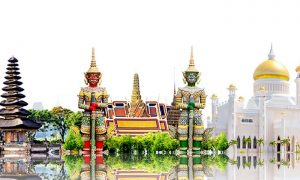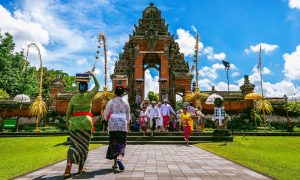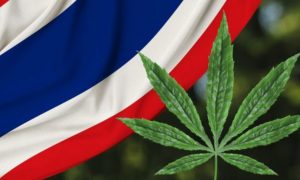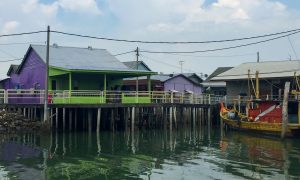
PINK FRANGIPANI FLOWERS FLOAT IN TERRACOTTA BOWLS, their sweet fragrance a counterpoint to the earthy herbal notes of the oil being gently massaged into your feet and body. Working together in silent partnership, two masseuses transport you to that elusive state where body and mind are in complete harmony, the only reminder of the outside world being the soft sigh of the Indian Ocean in the background. Could anything so utterly blissful also be good for you?
It certainly could, if you are enjoying one of the world’s oldest forms of healing. Ayurveda – derived from the Sanskrit words for life (ayuh) and knowledge or science (veda) – originated in India more than 3,000 years ago and soon spread to Sri Lanka, where Sinhalese kings established ayurvedic treatment centres in the ancient cities of Anuradhapura and Polonnaruwa.
Today’s luxurious ayurvedic Spas are a far cry from the medical treatment centres of the past, yet the principles remain the same. A combination of native herbs, diet, massage, hydrotherapy and oil treatment is used to treat everything from stress to diabetes, migraine, asthma, arthritis and high blood pressure. Ayurvedic specialists will tell you that this form of treatment also helps boost the immune system, promote a general sense of well-being and even helps delay the ageing process. With promises like this, it’s no wonder that almost every self-respecting luxurious resort or hotel in Sri Lanka has some form of spa or ayurvedic massage centre.
With many in the West turning from the sort of medicine which treats only the body towards a more holistic approach, the ayurvedic principle that body, mind and soul are inextricably linked strikes a responsive chord. The names of the some of the ayurvedic treatments – Abhyanga, Shirodhara and Shirobasti – may sound like a random reading from an ancient Hindu epic, and some of the ideas upon which Ayurveda is based are remarkably different from the principles of Western medicine. Followers of traditional Chinese medicine, however, will find the stress on balance inherent in Ayurveda perfectly rational.
Resorts dotting the south coast of Sri Lanka generally offer selected ayurvedic spa treatments as part of a relaxing holiday, an option along with tennis, swimming, cooking lessons or day-trips to the nearest national park in search of elephants and leopards. In these Spas, the gentle, feel-good aspects of Ayurveda are readily apparent, with the principles and techniques of this ancient medical approach used to promote a sense of well-being rather than to treat illness.
The basis of ayurvedic medicine is the belief in a combination of five basic elements (water, fire, air, earth and space or ether) which form three types of energy or dosha within the body: vitu (a combination of air and space); pithu (fire and water) and kapha (earth and water). Ayurvedic practitioners believe that illness arises when these dosha are out of balance, and work to restore harmony. For any form of medical treatment, the ayurvedic doctor will first examine the patient to assess their balance of dosha or energies. Comprehensive treatment not only includes massage, herbal baths, oil treatment and a special diet for the body, but may involve meditation, yoga and music to help the mind and soul.
For medical treatment rather than well-being, there are a number of specialist ayurvedic centres where visitors are urged to stay a full two to three weeks to obtain the maximum benefit from a combination of pure fresh air, a largely vegetarian diet of locally grown food, yoga, meditation and individually designed ayurvedic treatments. Some of the more luxurious ayurvedic treatment centres offer individual villas with their own private treatment rooms and courtyards. Imagine the bliss of lying on a massage couch in your own private courtyard, the gentle tropical air and utter peace adding to the magic worked by with a pair – or two – of skilled hands. Such specialist medical Spas are not restricted to the coast; for example, one well-known centre is found in the cooler hill country near Kandy, another in a remote region on a lake or “tank” in the central area, and yet others in Colombo.
One of the most delightful ayurvedic treatments, guaranteed to induce a sense of well-being and relaxation, is to lie in a warm bath filled with fragrant flowers or herbs. So much for the outer body, but what about cleansing of the inner body, or detoxification? This is carried out through a combination of a special detoxifying herbal compound, and oiling the body before inducing sweating. If the latter happens to involve sitting in a sauna fired by fragrant woods, the feel-good factor definitely rises to the fore.
Lying on your back on a comfortable padded bed, with your hair and eyes protected by a folded cloth, while warmed herbal oil rhythmically drips, second by steady second, onto the centre of your forehead for about 20 minutes, might sound like a Sri Lankan version of Chinese water torture. However, anyone who has ever experienced Shirodara (as this treatment is called) swears it is very effective at helping cure migraines and any disorders of the central nervous system.
Whether you feel the need to make ayurvedic treatment the main focus of a trip to Sri Lanka, or would simply like to enjoy the benefits of centuries of wisdom, you are sure to leave feeling superbly relaxed and full of the joy of living.
Source: The Expat September 2004
Get your free subscription and free delivery of The Expat Magazine
This article has been edited for ExpatGoMalaysia.com
"ExpatGo welcomes and encourages comments, input, and divergent opinions. However, we kindly request that you use suitable language in your comments, and refrain from any sort of personal attack, hate speech, or disparaging rhetoric. Comments not in line with this are subject to removal from the site. "

















